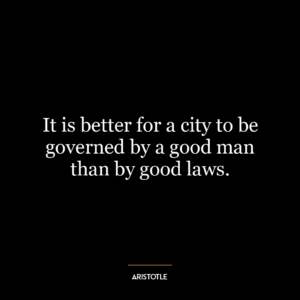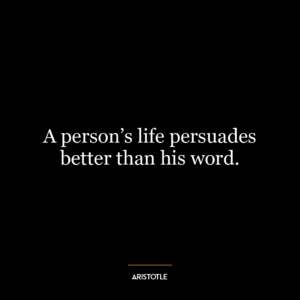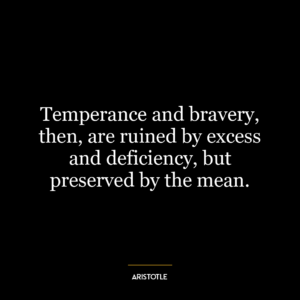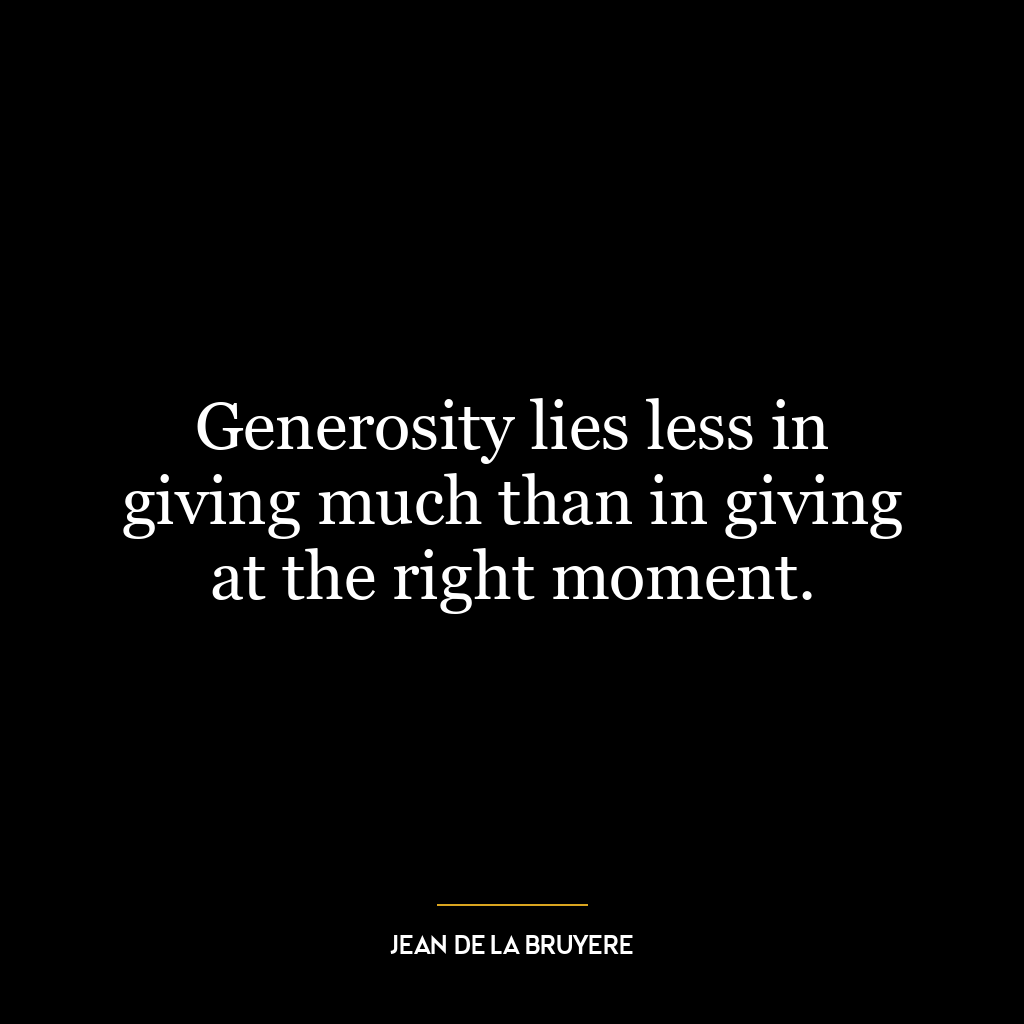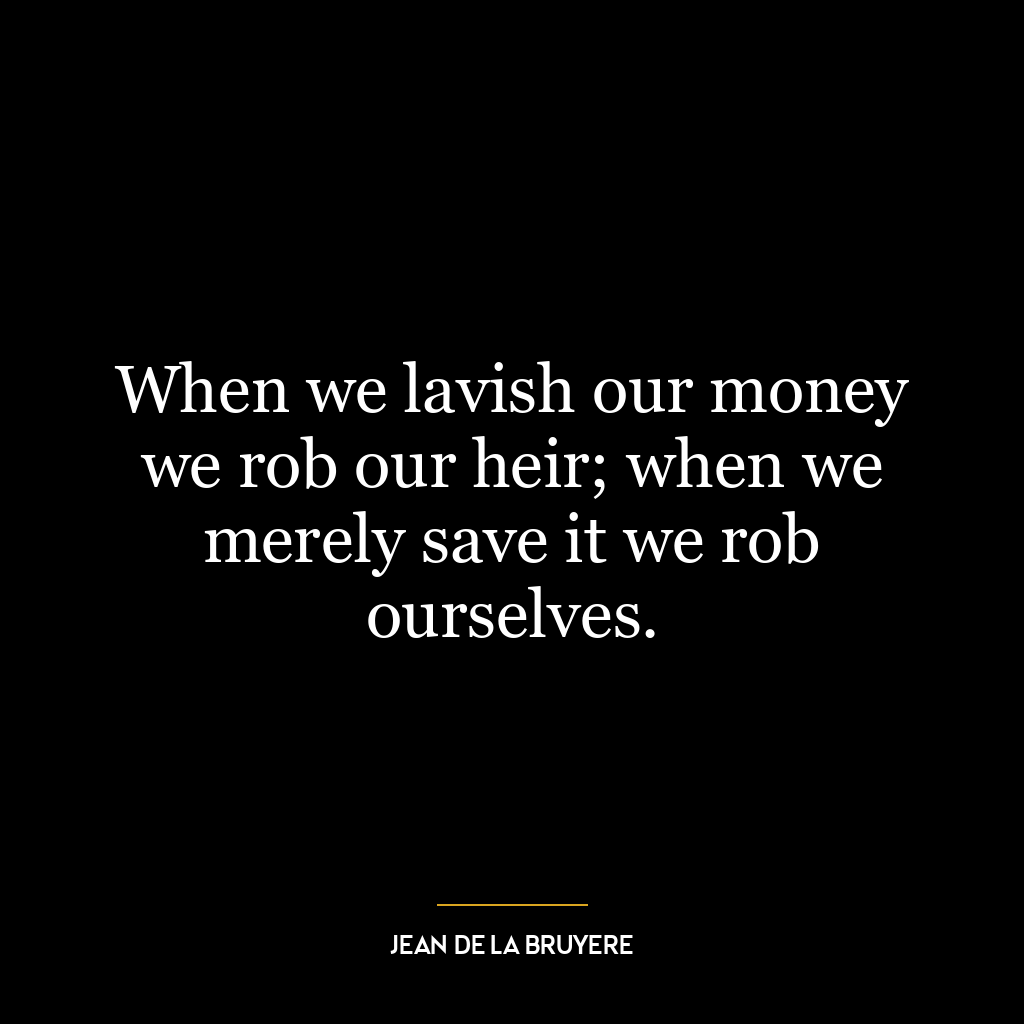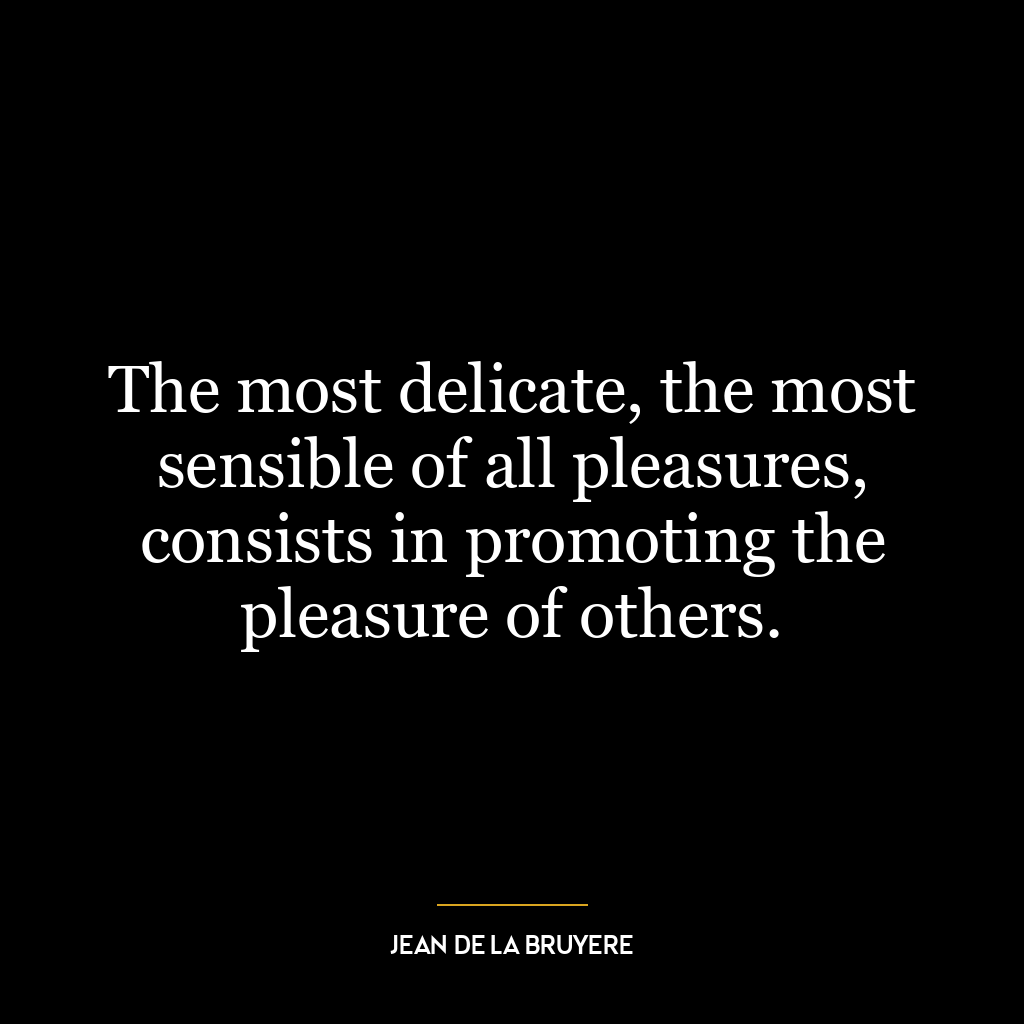This quote suggests that when someone does a good deed or favor for another, they do not necessarily want to be repaid in the same manner. Instead, they might prefer to see the recipient of the favor pass it on to someone else, or perhaps show gratitude in a different, more meaningful way. The “coin” in this context is a metaphor for the exact same type of favor that was originally given.
Aristotle’s idea can be seen as a precursor to the concept of “pay it forward,” where the beneficiary of a good deed repays it to others instead of to the original benefactor. This creates a chain of kindness and goodwill that can extend far beyond the original two parties involved.
In the context of personal development, this quote underscores the importance of altruism and the idea that the true value of a good deed lies not in direct reciprocation, but in the positive ripple effects it can create in the world. It encourages us to not keep score in our relationships, but to act out of kindness, generosity, and a genuine desire to help others.
In today’s world, this concept is especially relevant given the global challenges we face. If each person who benefits from an act of kindness or generosity pays it forward, we can collectively make a significant positive impact. This could be as simple as helping a stranger in need, volunteering in the community, or supporting a cause that is important to us.
Moreover, in a society that often values transactional, tit-for-tat interactions, Aristotle’s quote serves as a reminder that some of the most important and meaningful aspects of life, like kindness and generosity, cannot and should not be quantified or repaid in like kind.






